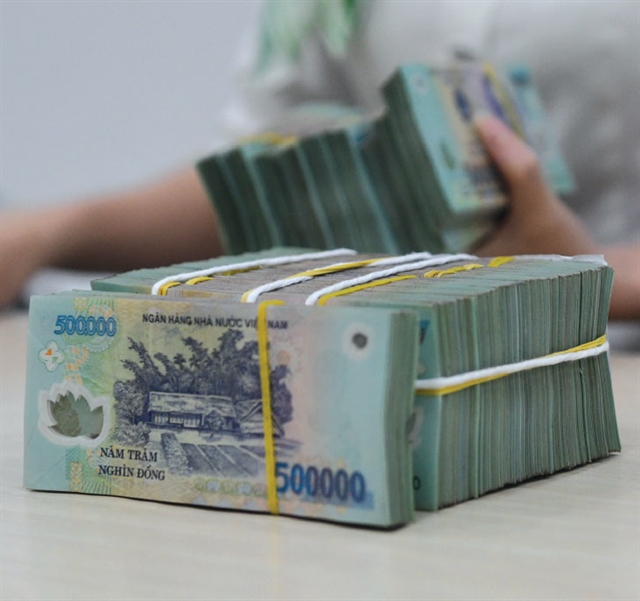 Economy
Economy


|
| A staff of a State-owned bank counts money at a branch in Hà Nội. By the end of June 2024, capital of the group of private banks doubled that of the group of State-owned banks. Photo vnbusiness.vn |
HÀ NỘI — While private joint stock commercial banks have increased capital significantly so far this year, the capital for State-owned commercial banks has remained stagnant.
According to the latest data from the State Bank of Vietnam (SBV), by the end of June 2024, private banks' capital doubled that of State-owned banks. State-owned commercial banks have a total charter capital of nearly VNĐ228.23 trillion, an increase of 4.75 per cent compared to the end of 2023, while private joint stock commercial banks have a total charter capital of VNĐ587.85 trillion, an increase of 8.35 per cent compared to the end of 2023.
Joint stock commercial banks can easily implement capital increase plans using their shares, while State-owned commercial banks have to go through many rounds of approval to get the go-ahead from authorities on any planned capital increases. This has resulted in State-owned banks seeing much lower capital than private joint stock commercial banks.
Statistics show that the leader of the entire banking system in charter capital is currently VPBank, a private bank with charter capital of nearly VNĐ79.34 trillion. Techcombank, another private bank, follows in second place with charter capital of VNĐ70.45 trillion. Meanwhile, State-owned BIDV, Vietcombank and VietinBank ranked third, fourth and fifth with charter capital of more than VNĐ57 trillion, VNĐ55.89 trillion and nearly VNĐ53.7 trillion respectively.
Banking and finance expert Dr Lê Xuân Nghĩa said there should be a long-term capital increase strategy for State-owned commercial banks. According to Nghĩa, if capital is increased, State-owned commercial banks -- which are the main force for reducing interest rates to support people and businesses after disasters -- can pump more capital into the economy to help with a faster recovery. More capital will contribute more to the economy.
State-owned banks have also proposed plans to increase charter capital by issuing individual shares. Earlier this year, Vietcombank planned to issue 6.5 per cent of its capital in private shares, while BIDV set a target of issuing 9 per cent. The deal is expected to bring each bank more than US$1 billion. However, according to information from the MBS Securities Company, the plans have been postponed until 2025 due to unfavourable macroeconomic conditions.
The situation is even worse for State-owned Agribank. According to Agribank's leaders, to gain a credit growth of 10 per cent in 2025, Agribank will need to receive additional charter capital of VNĐ10 trillion from the State.
Faced with difficulties in annual capital increases, leaders of State-owned banks have proposed that the Government and the National Assembly have a long-term mechanism so that they can increase capital sustainably and more proactively.
"We hope that the Government will submit to the National Assembly a policy to allow the application of a mechanism to increase annual charter capital for Agribank from the bank's profits from 2024. Instead of contributing to the State budget, Agribank can keep the profits to increase capital," Agribank’s chairman Phạm Đức Ấn said.
Meanwhile, VietinBank proposed that relevant authorities approve a policy allowing the bank to retain all its annual profits in five years from 2024 to 2028 to increase capital, improve financial capacity and expand credit growth. — VNS




